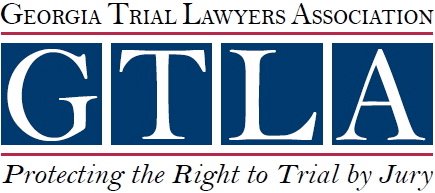Product-related accidents can happen unexpectedly, and when they do, they often leave victims grappling with serious injuries, financial burdens, and emotional distress. If you have been injured in a product-related accident in Georgia, you may be wondering whether you can sue for compensation, especially if you were partially responsible for the accident. Understanding your rights in such situations is crucial, as Georgia law follows specific rules when it comes to determining fault and liability in personal injury cases.




Georgia’s Comparative Fault Law
In Georgia, personal injury cases, including those involving product-related accidents, are governed by the principle of comparative fault. This rule plays a significant role in determining whether you can recover compensation if you were partially responsible for the accident. Comparative fault, also known as comparative negligence, allows a person who has suffered injuries due to another party’s negligence to recover damages even if they are partially at fault for the accident. However, the amount of compensation you can recover is directly influenced by the percentage of fault assigned to you.
The key aspect of Georgia’s comparative fault law is the 50% rule. Under this rule, if you are found to be 50% or more at fault for the accident, you will not be able to recover any compensation. On the other hand, if you are less than 50% responsible for the accident, you may still be eligible to seek compensation, but your total recovery will be reduced by your percentage of fault. For example, if a jury determines that you were 30% responsible for the product-related accident, your compensation will be reduced by 30%.
Establishing Product Liability in Georgia
To successfully pursue a claim for compensation in a product-related accident, it is essential to establish that the product was defective and that the defect caused your injuries. In Georgia, product liability claims typically fall under three main categories: defective design, defective manufacturing, and failure to warn. Each type of claim requires different evidence and legal arguments to prove liability.
In a defective design case, the injured party must demonstrate that the product’s design was inherently dangerous, even when used as intended. In a defective manufacturing case, the focus is on whether the product was flawed during the manufacturing process, making it dangerous. A failure to warn claim arises when a manufacturer fails to provide adequate warnings or instructions about the product’s potential risks, leading to the injury.
Regardless of which category your claim falls under, you will need to show that the product defect was the primary cause of your injuries. This is where comparative fault can come into play. If the manufacturer can prove that you were using the product in an unintended or unsafe manner, they may argue that your actions contributed to the accident, reducing or eliminating their liability.
How Partial Responsibility Affects Your Compensation
If you were partially responsible for the product-related accident, your compensation will be impacted based on Georgia’s comparative fault rules. When determining fault, the court or jury will consider the actions of all parties involved, including the injured party and the manufacturer. If it is determined that you were using the product in a way that contributed to the accident, your percentage of fault will be assessed.
For instance, if you were injured by a defective tool but were not following the manufacturer’s safety instructions, the court may find you partially at fault. If your fault is assessed at 20%, your total compensation will be reduced by that percentage. If your medical expenses, lost wages, and other damages total $100,000, you would only be able to recover $80,000 due to your partial responsibility.
It is important to note that the defendant, typically the manufacturer or seller, may try to shift as much blame as possible onto you in order to reduce their liability. They may argue that you misused the product, failed to follow warnings, or acted carelessly, all in an effort to reduce your compensation. This is why having strong legal representation is crucial to ensure that your side of the story is properly presented and that your level of fault is minimized.
The Role of Legal Representation in Product-Related Accidents
Pursuing compensation in a product-related accident can be a complex process, particularly if you are partially responsible for the incident. Manufacturers and their insurance companies often have substantial resources at their disposal to defend against claims and will use various tactics to limit their liability. This is why it is essential to have experienced legal representation on your side.
A skilled personal injury attorney will conduct a thorough investigation into the circumstances of the accident, gather evidence, and work with specialists to establish the defect in the product. They will also build a strong case to demonstrate that the manufacturer or seller bears the majority of the fault for the accident. If you are found to be partially responsible, your attorney will work to minimize your percentage of fault to maximize the compensation you can recover.
It is also important to act quickly after a product-related accident, as Georgia has a statute of limitations for filing personal injury claims. In most cases, you have two years from the date of the accident to file a lawsuit. Failing to file within this time frame can result in the loss of your right to seek compensation.
Hiring a Personal Injury Attorney How Long Will a Personal Injury Case Take?Related Videos
What to Expect in a Product Liability Lawsuit
If you decide to pursue compensation for a product-related accident, even if you were partially responsible, the legal process typically begins with filing a lawsuit against the manufacturer, seller, or other responsible parties. Once the lawsuit is filed, the discovery phase begins, during which both sides will gather evidence and information related to the case. This may involve depositions, document requests, and testimony.
During this process, both sides may attempt to negotiate a settlement to avoid a trial. If a settlement is reached, the case will be resolved without the need for court proceedings. However, if the parties cannot agree on a settlement, the case will proceed to trial, where a judge or jury will determine the outcome.
At trial, the court will hear arguments from both sides regarding fault and liability. The manufacturer may argue that you were partially or fully responsible for the accident, while your attorney will present evidence to demonstrate the defect in the product and the manufacturer’s role in causing your injuries. If the court finds the manufacturer liable, it will then assign a percentage of fault to each party and determine the amount of compensation you are entitled to based on your level of responsibility.
Representative Cases
Damages You May Be Entitled to Recover
If you are successful in your product liability claim, the damages you may be entitled to recover can include compensation for medical expenses, lost wages, pain and suffering, and other costs associated with your injuries. Medical expenses typically cover the cost of hospital stays, surgeries, doctor visits, rehabilitation, and any ongoing treatment you may need as a result of the accident. Lost wages refer to the income you have lost due to your inability to work while recovering from your injuries.
Pain and suffering damages are intended to compensate you for the physical and emotional distress caused by the accident. This can include compensation for the pain you experienced as well as any emotional trauma, anxiety, or depression you may have suffered due to the injury.
If you were partially responsible for the accident, these damages will be reduced by your percentage of fault, as outlined under Georgia’s comparative fault rule. Nonetheless, recovering compensation can help alleviate the financial burden of the accident and provide you with the resources you need to move forward.
Protecting Your Rights After a Product-Related Accident
Being involved in a product-related accident can be overwhelming, especially if you believe you were partially responsible for the incident. However, it is important to understand that you still have the right to pursue compensation under Georgia’s comparative fault laws. Seeking legal guidance as soon as possible is the best way to protect your rights and ensure that you receive the compensation you deserve.
By working with an experienced attorney, you can navigate the complexities of a product liability claim, even when partial responsibility is a factor. Your attorney will advocate on your behalf, ensuring that your side of the story is heard and that your percentage of fault is minimized. This will help maximize the amount of compensation you can recover, providing you with financial support during your recovery.
If you have been injured in a product-related accident in Georgia and are concerned about your partial responsibility, Princenthal, May & Wilson, LLC is here to help. Our experienced legal team understands the complexities of product liability cases and will fight to protect your rights. We will work tirelessly to build a strong case, minimize your percentage of fault, and pursue the maximum compensation you deserve. Contact us today for a consultation and take the first step toward securing the compensation you need to move forward.





